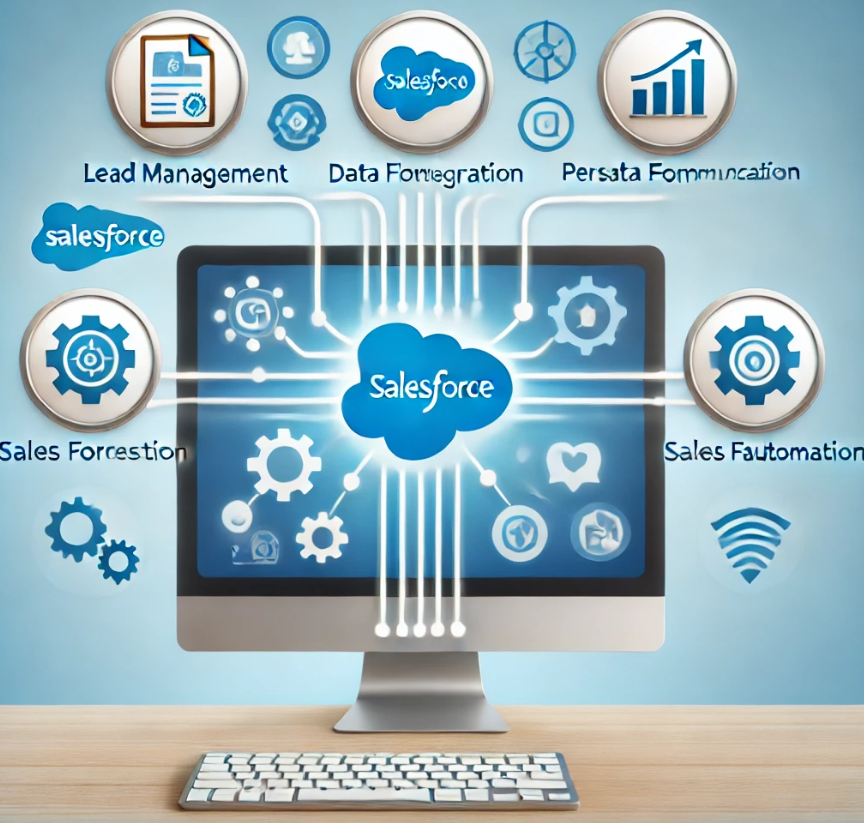In today’s competitive market, businesses need to stay ahead by streamlining their operations, improving customer experiences, and driving sales efficiency. One of the most powerful tools at the disposal of organizations using Salesforce is the Salesforce API. By integrating Salesforce with other platforms and automating key functions, companies can optimize their sales process and provide a more seamless experience for both teams and customers. Let’s explore five key ways Salesforce API integration can revolutionize your sales process.
Unlocking Automation for Lead Management
Managing leads effectively is one of the cornerstones of a successful sales operation. However, manually entering, tracking, and updating lead information can slow down the process and increase the chance of errors. This is where Salesforce API automation steps in to transform lead management.
By integrating Salesforce with other customer touchpoints, such as your website, marketing platforms, and email systems, leads can be automatically captured, updated, and assigned to the appropriate sales reps. APIs can pull data from forms, social media platforms, or e-commerce transactions, instantly feeding this information into Salesforce, ensuring your team always has access to the latest details.
Automation also allows for immediate responses to leads, such as sending out welcome emails or assigning follow-up tasks. This rapid response reduces the chances of losing leads due to delays and ensures that every potential customer is promptly engaged.
Streamlining Data Flow Between Systems
One of the greatest advantages of Salesforce API integration is its ability to connect multiple systems and create a unified flow of data. Sales teams often rely on various tools such as CRMs, marketing automation platforms, and customer service software to close deals. Manually transferring data between these systems can be time-consuming and prone to errors.
With Salesforce API, you can integrate these platforms to ensure seamless communication between tools. For example, when a customer makes a purchase on your website, the transaction data can be automatically reflected in Salesforce, updating both customer profiles and sales reports in real-time.
By having all your sales data in one place, your team will spend less time on administrative tasks and more time engaging with customers, ultimately improving productivity and reducing operational bottlenecks.
Enhancing Customer Relationships with Personalized Communication
Effective sales are built on strong relationships, and one of the key components of building these relationships is personalized communication. However, personalization at scale can be challenging without the right tools.
Salesforce API allows you to automate personalized email sequences and outreach based on customer behavior and data stored in the CRM. By integrating with email marketing platforms or customer data platforms (CDPs), you can trigger specific actions, such as sending a thank-you email after a purchase or a product recommendation based on previous interactions.
The beauty of using API for this is that it not only automates these communications but also ensures they are tailored to the individual customer. This level of personalization improves customer satisfaction and increases the likelihood of converting leads into long-term clients.
Automating Sales Forecasting and Reporting
Sales forecasting is critical for understanding future performance, setting goals, and making informed business decisions. However, manually compiling data from various sources to generate accurate forecasts can be a time-consuming process. Salesforce API can streamline this by automating the collection and analysis of sales data.
By integrating Salesforce with your financial systems or ERP software, you can automatically pull in sales numbers, inventory levels, and revenue data, allowing for more accurate and up-to-date forecasting. This real-time information helps sales managers make quicker decisions and adjust strategies based on current market trends.
Additionally, API integration allows for custom reporting dashboards in Salesforce, where you can view all relevant sales metrics in one place. Whether you need to track pipeline performance, deal velocity, or customer acquisition costs, automated reporting saves time and provides clear insights to guide your team.
Driving Efficiency with Task and Workflow Automation
Manual tasks and repetitive workflows can bog down your sales team, taking time away from activities that directly drive revenue. Salesforce API can automate many of these tasks, enabling your team to focus on what matters most: selling.
By integrating Salesforce with task management tools like Trello or Asana, you can automate the creation and assignment of tasks based on triggers within Salesforce. For example, when a deal reaches a specific stage, the system can automatically assign follow-up tasks to the relevant sales reps. Similarly, API integration can automate contract generation and approval processes, further accelerating the sales cycle.
Automation also helps eliminate the risk of important tasks slipping through the cracks, ensuring that every opportunity is followed up in a timely manner.
Elevate Your Sales Process with Salesforce API Integration
Incorporating Salesforce API integration into your sales process isn’t just about saving time—it’s about creating a more efficient, data-driven, and personalized approach to sales. By automating lead management, streamlining data flows, enhancing customer relationships, improving forecasting, and driving task efficiency, API integration enables your sales team to focus on what they do best: closing deals.
Whether you’re looking to automate customer communications, link your financial systems for better reporting, or free your team from repetitive tasks, Salesforce API is the tool you need to take your sales process to the next level. The possibilities for automation are vast, and with the right integration, your sales operations will become more streamlined, efficient, and effective.
It’s time to harness the power of Salesforce API integration to boost your sales, improve customer engagement, and transform your overall business operations. Take the first step today, and start exploring how API automation can give your team the competitive edge it needs in today’s market.

